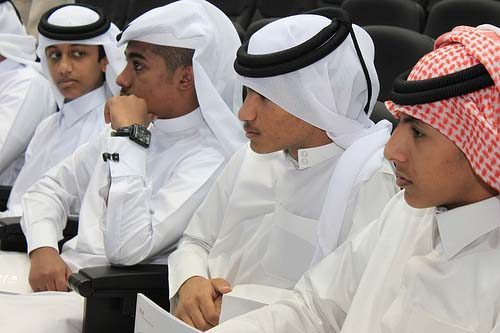
The wealthier a country becomes off of its natural resources, the worse its students do in school – and Qatar is no exception, a new report finds.
The world’s richest country by GDP per capita, Qatar is home to the world’s third largest natural gas reserves.
Its students also have some of the worst standardized test scores on the planet.
The negative correlation between wealth earned from natural resources and learning is one that is played out across the globe, the Organization for Economic Cooperation and Development has found.
In countries with few natural resources like Finland and Japan, for example, students perform better because there is a higher value placed on education, which is viewed as a means to achieve economic success, the study asserts.
How well students do in school is also a strong predictor of how countries will fare in the future, the OECD asserts:
Without sufficient investment in skills people languish on the margins of society, technological progress does not translate into productivity growth, and countries can no longer compete in an increasingly knowledge-based global economy.
In short, knowledge and skills have become the global currency of 21st century economies. But there is no central bank that prints this currency, you cannot inherit this currency and you cannot produce it through speculation, you can only develop it through sustained effort and investment by people and for people.
Qatar is certainly aware of this fact – it has spent billions of dollars to attract top universities to set up shop here.
Yet it still struggles to convince locals, especially males, of the value of a higher education, and dramatic salary increases like the one passed last summer are not likely to motivate anyone to work harder.
Thoughts on where all this leaves Qatar in the future?
Photo by ictQatar.







